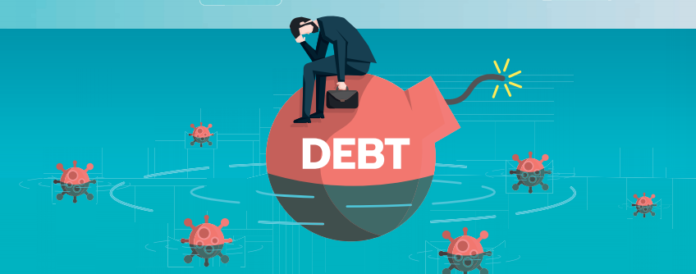May 2021
Paul Day has some advice on coping with financial anxiety during Covid-19.
Talking about your finances is never going to be easy. Along with politics, sex and religion, the subject of money is often considered to be a deeply private matter – something never to be discussed in public or even among members of the same family.
That is why so many of us remain silent, even when we’re suffering. The barriers preventing us from reaching out and asking for help when we’re experiencing financial hardship can sometimes feel simply too high to overcome.
With accountants, this can be even more excruciating. The added stigma of being a financial professional whose own finances are in question only increases the sense of shame or failure.
In the midst of a global pandemic, which has impacted many of our finances for a year at this point, many of us are worried about our personal finances, our businesses and our futures, but we can find strength in solidarity. Now, more than ever, we need to break down those walls and learn how to ask for help.
Failure to do so could have severe and long-lasting consequences. Citizens Advice found that
74% of people who have financial difficulties have experienced mental health issues, leading to over half having had panic attacks. Increased stress levels also lead to a lack of sleep, which can impact physical health. At the same time, financial wellbeing can have a profound effect on personal relationships, isolating people from support systems when they might need them the most.
So, how do we ease the burden and empower people to open up about money?
Time to take control
Financial wellbeing is about control. Control over your day-to-day decisions and long-term goals. When we lose this sense of control, we find ourselves stifled, caged in, helpless. Anxious thoughts start to cross our mind. Can I pay rent this month? Will I ever be able to buy my first home? Do I have enough money to support my family? Will I have enough money saved to enjoy retirement? Many of us might find ourselves worrying about these questions on a more regular basis now as the world enters a period of economic uncertainty.
Anyone can have these feelings, regardless of income or profession. It’s dangerous to assume that just because someone is earning a high salary, they automatically acquire the status of being financially solvent. For example, Salary Finance’s UK Employers’ Guide to Financial Wellbeing survey, found that those earning over £100,000 reported the same level of concern about their personal finances as those earning less than £10,000. This could be because of cash flow or debt challenges which inhibit them from saving, or personal circumstances.
Likewise, being a chartered accountant does not make you immune from the difficulties the economy is facing. Any financial professional, no matter how successful they are, could face redundancy, or seeing their practice lose important clients.
Accepting that these feelings are normal and that you are not alone is the first step towards better financial wellbeing. This will allow you to be kinder to yourself and create space for you to unravel your thoughts and anxieties. Once you have a better understanding of what you’re feeling, you should find it easier to open up and take the first steps towards better financial wellbeing.
Take stock of your finances
Before you reach out for help, it’s useful to have an accurate picture of your financial situation.
Knowing your income, expenditure and disposable income once your day-to-day expenses are covered will give you confidence in your decisions and help you to create a budget: see https://tinyurl.com/ykc2s8sj. If your partner or spouse usually looks after the finances, be sure to talk the budget through with them, so that you both understand your financial situation.
Tackling any outstanding debts you owe during this time might seem a daunting prospect but it’s okay to ask for help. There are constructive and positive steps you can take to work your way towards becoming debt free – and what’s more, there are plenty of online guides that will walk you through every step of the process: go to https://tinyurl.com/ujbvvrpm.
Look for the positives
Remember, you don’t have to struggle alone.
CABA, the wellbeing charity, offers a number of free self-help guides on its website that can help you to deal with financial anxiety. It’s dedicated financial wellbeing page features a tailored toolkit of free services and self-help resources relevant to you: https://cabafinancial.org.uk/.
• Paul Day is a Support Officer at CABA, the charity supporting the wellbeing of chartered accountants and their families.
Emily: a case study
Emily, a student in the final year of her ACA training contract, gets in touch with us via our live chat function on the website. She’s doing well with her studies and has passed all of her exams.
When she was at university, she spent heavily on a credit card and while she has worked hard to get her finances in order, the high interest rate is preventing Emily from making a reduction in the balance. She’s had to turn down an invitation to a colleague’s leaving meal and her cousin’s hen do and is feeling embarrassed about it.
Emily and I work out a budget that she will adopt moving forward. There are a few changes she can make such as switching her car insurance and cancelling some barely used subscriptions that will give her flexibility to not only maintain her minimum payments but also reduce the balance, too.




